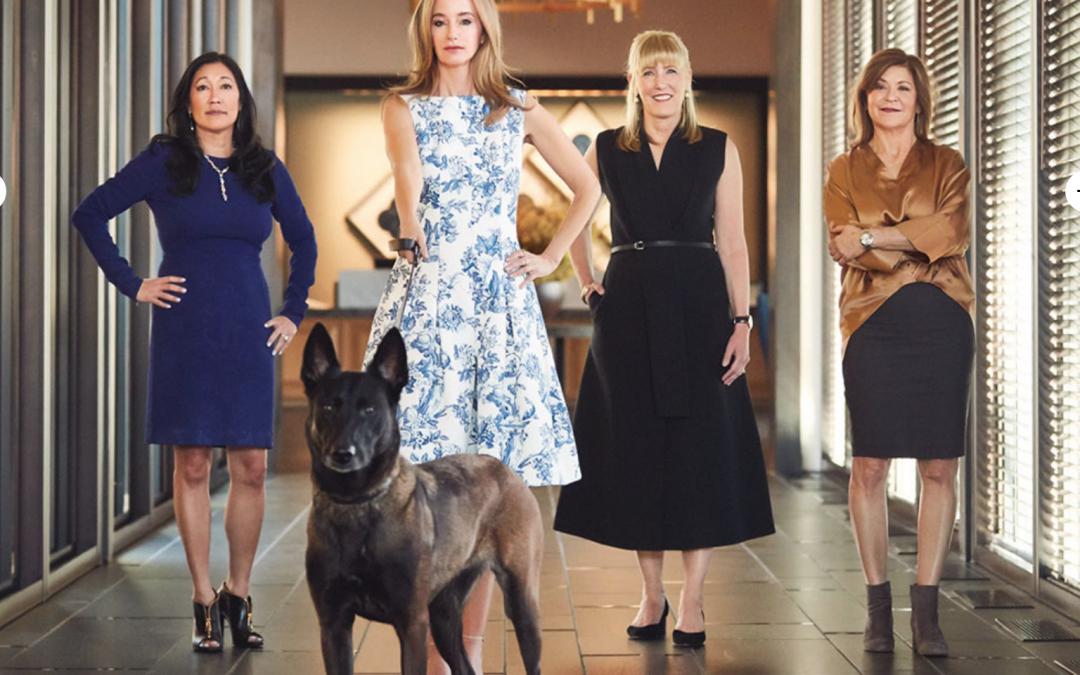
Dec 9, 2021 | Inspiring Women, Women in tech
Last week I had the pleasure of interviewing Julian Guthrie about her action packed career as a journalist, best selling author and founder of Alphy, an exciting new app designed to empower and inspire women. Julian is the epitome of an action mindset! Here’s her take on what to do when someone blocks your career path:
“’No’ is not something that you should feel is fixed. That ‘no’ in fact, simply means: find another way around. And if you fully believe in what you’re doing, find another way, keep working at it. If you’re earnest, if you’re authentic, if you are bringing a certain skill set and a vision, find another way.” Julian Guthrie, Alphy CEO and Founder
 We explored why we get stuck and what we can do to get unstuck, and build momentum in our lives and careers. Julian’s story and the one she shares about XPrize’s Peter Diamandis demonstrates how sometimes, having audacious goals, and making audacious promises without having all the pieces in place, can help propel you into an action mindset and phenomenal success.
We explored why we get stuck and what we can do to get unstuck, and build momentum in our lives and careers. Julian’s story and the one she shares about XPrize’s Peter Diamandis demonstrates how sometimes, having audacious goals, and making audacious promises without having all the pieces in place, can help propel you into an action mindset and phenomenal success.
This week on Fresh Dialogues, I’m including highlights of our conversation. I hope it will inspire you to have an action mindset.
Listen to the Fresh Dialogues podcast on Listen Notes, on iTunes or below:
Audio Player
.
First of all, you might be wondering what do you mean by an action mindset? Here’s my definition: it’s the belief that you can take action to change your future; that your abilities are not fixed, but can be improved by a bias to action.
If you’re familiar with the term Growth Mindset, think of an action mindset as a growth mindset on steroids. Not only do you embrace new challenges as a learning opportunity, but you harness that attitude to propel you to take more and more action.
New research reveals that our mindsets are NOT binary as was previously thought. We don’t have either a growth or a fixed mindset. Instead we’re all capable of accessing a continuum of mindsets. By becoming aware of our mindset triggers, and using tools from psychology, we can nurture a proactive and potent ACTION MINDSET.
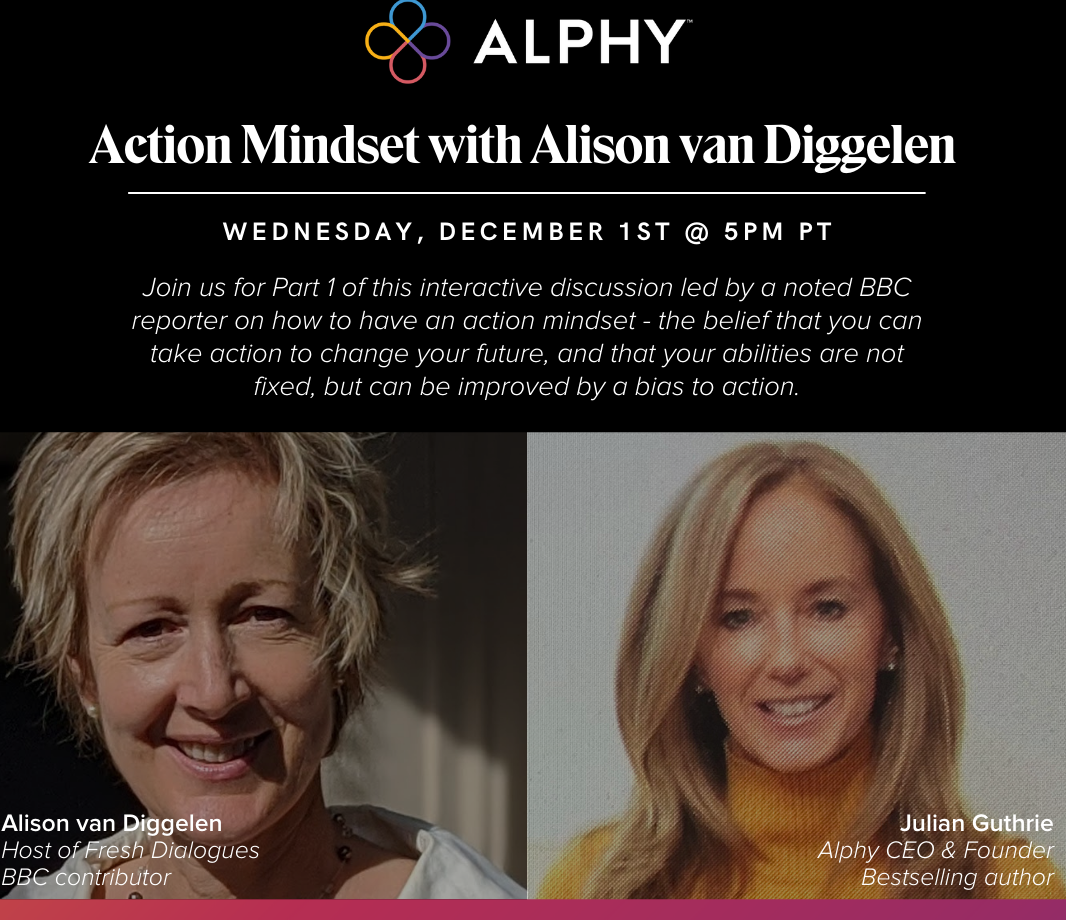 I asked Julian to share the story of one excruciating time she was stuck and found it hard to move forward. After she secured a book deal for her best seller, “The Billionaire and the Mechanic” she hit a wall. She could not convince Oracle founder Larry Ellison (the billionaire in question) to be interviewed for the project. Without his cooperation, her book was dead in the water.
I asked Julian to share the story of one excruciating time she was stuck and found it hard to move forward. After she secured a book deal for her best seller, “The Billionaire and the Mechanic” she hit a wall. She could not convince Oracle founder Larry Ellison (the billionaire in question) to be interviewed for the project. Without his cooperation, her book was dead in the water.
Here’s what Julian told me (edited for length and clarity).
Julian Guthrie: So I get this book deal and there’s a lot of interest in it and my editor starts asking how are the interviews going? In the meantime I’m frantically reaching out to his people at Oracle in the marketing departments. I tried Larry himself, had his email and got no response from him. It went on for a couple of months, so needless to say it was getting more and more unnerving. And finally, one of his chief marketing people told me: you know, Larry answers his emails personally at between one and two am, so you might want to try then.
So I set my alarm.
There’s a fine line between reaching out to someone politely, but consistently, and bugging someone so much, you’re going to get a ‘no’ or they’re going to block you. So I would set my alarm and I’d get up and I’d send some very short email, at 1am or 2am. And I did that for a period of two or three weeks, and got no response. But I kept at it and finally, I sent him another email. “This is a great story…” Brevity is key in these emails I’ve learned. And it was probably at 2am, very late, and I got an immediate response. And it was from Larry and it was a three word response, and it was: “Happy to talk.”
And that was what began a year of very in-depth interviews.
So it put me on that journey. I went from: I was stuck and I was getting a little bit nervous then to: okay, I still believed that the story really needed to told, and I still believed that Larry would love the story that I had in mind, if only I can really get his attention.
Alison van Diggelen: As you can hear, Julian Guthrie is the epitome of an action mindset. I was curious about this major roadblock that could have derailed her whole career as an author. I asked her if the setback helped propel her in writing that book and others?
Julian Guthrie: Every book is like having a baby in a way. It’s a long journey. It has its ups and downs and it’s fraught and this one was full of major, major challenges. But it definitely showed me that “no” is not something that you should feel is fixed. That ‘no’ in fact, simply means: find another way around. And if you fully believe in what you’re doing, and find another way, keep working at it. If you’re earnest, if you’re authentic, if you are bringing a certain skill set and a vision, find another way. So I think it was an affirmation of that.
Alison van Diggelen: And this is where it gets interesting. Julian’s action of promising a book before she had the main character’s buy-in is certainly audacious, but it’s not that unusual in the world of entrepreneurs. Think about how Elon Musk operates for example. He’s always promising the world before he’s in a position to deliver. Julian, Elon and Peter Diamandis all share this action mindset.
Julian Guthrie: And later in my career, I saw other entrepreneurs doing something similar to what I’d done. I wrote about Peter Diamandis who launched the XPrize and he announces this $10 million prize for the first team that could privately fly a manned rocket to the start of space, twice. And he announces this to tons of fanfare, globally, front cover publicity and one minor detail: He didn’t have the 10 million! But he believed that he’d be able to get the money, the easy part would be getting the money and the hard part would be getting teams.
So, it’s something to consider and I think especially for women where we feel that we have to check every box in order to apply for something, or in order to take that next step, or go for that promotion. We don’t!
“A lot of people say to me, I’m going to write a book but I don’t know what the book is. I don’t have the outline written. But I’m like, well, what’s the first page? Start. Just go! Just start writing!” Julian Guthrie
Of course, you want to be prepared. You want to be good and skilled and definitely it was beyond my reach, which I love. I love being in over my head, intellectually and experience wise. I find that to be a great thing in life… we shouldn’t be halted or stalled just because we haven’t done something.
A lot of people say to me, I’m going to write a book but I don’t know what the book is. I don’t have the outline written. But I’m like, well, what’s the first page? Start. Just go! Just start writing!
Alison: Note that Julian said she “loved being in over her head, intellectually and experience wise. That we shouldn’t be stuck, just because we haven’t done something, yet. So next time you feel stuck, think of Julian and take that first step, write that first page. Just start taking action.
During the Alphy podcast, we also covered: Why are our brains like velcro for negative experiences and teflon for positive ones? What is toxic optimism and what are the three requisites to build grounded hope? How can temptation bundling and identifying your triggers help us stop languishing?
I plan to dive into these questions in future Fresh Dialogues podcasts. On Alphy you can listen to our whole discussion and get inspired by the stories of other female trailblazers like Julian Guthrie. Meantime, if you’d like to sign up for the Alphy app, click on the Alphy invitation here and follow the prompts.
Thank you for following Fresh Dialogues. Want to meet more inspiring women? Check out the Fresh Dialogues collection here.
We welcome your feedback and story ideas here or at Facebook and Instagram.
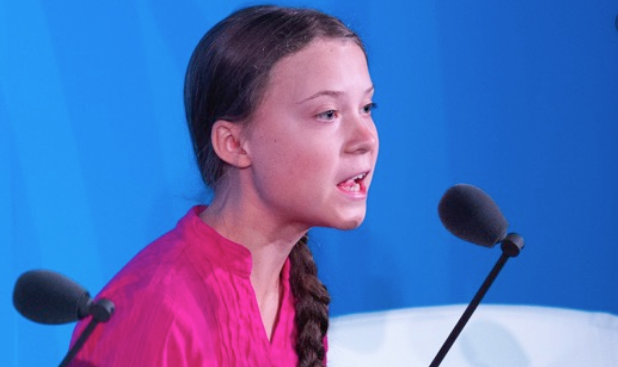
Sep 25, 2019 | BBC World Service, Electric Vehicles, Inspiring Women, Podcast, Policy
Download or listen to this lively Fresh Dialogues interview
Audio PlayerWe welcome feedback at FreshDialogues.com, click on the Contact Tab | Open Player in New Window
___
This week, Greta Thunberg, the Swedish teenager, stole the show at the United Nations General Assembly. Thanks to her, climate change is on the minds of the world. I was invited to discuss climate change action on the BBC World Service this month and we explored the role of activists like Thunberg, indigenous people, and technology pioneers like Elon Musk.
With visible rage, Thunberg described the urgency of action in stark terms on Monday.
”People are suffering, people are dying, entire ecosystems are collapsing. We are in the beginning of a mass extinction and all you can talk about is money and fairytales of eternal economic growth.”
Then Thunberg made a passionate plea to each one of us, especially political leaders, to examine our consciences.
“How dare you continue to look away? The eyes of all future generations are upon you. And if you choose to fail us, I say: We will never forgive you.”
Greta Thunberg’s fury was evident to everyone who watched her, but she ended on a positive note:
“Right here, right now is where we draw the line. The world is waking up. And change is coming, whether you like it or not.”
This powerful young woman speaks for her generation and her fierce, straight-talking message has unsettled certain people, and helped spur record-breaking climate strike demonstrations around the world.
BBC host, Jamie Robertson led a lively discussion exploring the urgency of climate change action and we were joined by ABC Australia’s Clare Negus. I took the opportunity to praise Thunberg’s tenacity.
The program started with a soulful report by the BBC’s Frey Lindsay. He reported on a gathering of indigenous community leaders from around the world who met at University College London to listen, exchange ideas and build solidarity in the fight against environmental degradation and climate change.
Listen to the podcast at the BBC World Service (environmental discussion starts at 10:40)
Listen to the Fresh Dialogues podcast (featuring Greta Thunberg’s powerful words):
Audio Player
.
Here’s a transcript of conversation highlights (edited for length and clarity):
Jamie Robertson: In California, you’re very much on the front line, we think of the wildfires…do indigenous people have a role to play here?
Alison van Diggelen: It’s important for us in California, and around the world, to listen to the indigenous people. What we do over the next ten to twenty years is going to determine the fate of humanity. We need to remember environmentalist, John Muir, who said:
“When we try to pick out anything by itself, we find it hitched to everything else in the universe.”
Technology plays a role in this by increasing transparency. Almost everyone has a mobile phone (and can take photos of environmental abuses), so multinationals can’t get away with what they used to.
Jamie Robertson: How high up the news agenda are questions about environmental problems and climate change?
Alison van Diggelen: Greta Thunberg, bless her heart, is keeping it on our agenda, but I wish it were higher. Looking at the Democratic Party Presidential debates, climate change was there, but I wish we could raise the issue more. People are concerned about what’s impacting them on a daily basis. There’s not enough of a long term view. We need more people like David Attenborough (and Greta Thunberg and Bill McKibben) speaking up for the environment.
Jamie Robertson: Clare ?
Clare Negas: It’s a major criticism of ABC Australia that we do too much on climate change and not enough on cost of living stories!
Jamie Robertson: I want to take the conversation on to the Frankfurt Motor Show and the extraordinary confrontation between the “Lords” of the auto industry and ordinary citizens worried about climate change, worried about cars and what they’re doing to the environment.
Alison, you’re in California at the forefront in the development of electric vehicles and things which could actually make a difference. Is there a sense of optimism that these things will work?
Alison van Diggelen: Absolutely. California is where Elon Musk jumpstarted this electric vehicle revolution. Tesla is doing phenomenally well. They’re due to sell about half a million electric cars this year. California is a state that is doing all it can to boost the sales of electric vehicles (EVs). It accounts for half of all U.S. sales of EVs thanks to rebates and state government policies. It has a goal of getting 5 million EVs on the road by 2030 and it does things like fast tracking permissions for charging infrastructure; that’s a key part of making EVs the number one form of transport.
Elon Musk has predicted that within 10 years, the majority of cars produced will be electric. Others like Morgan Stanley say it’s more like 20 years. It may be somewhere in the middle.
Jamie Robertson: Clare, do you have such faith?
Clare Negas: I do! I think globally electric cars will be the future. In Australia it’ll be a bigger battle because there is such a cultural identity around petrol and diesel fueled engines. We’re a strong car culture and that will continue. A few years ago, we drove a Tesla hundreds of kms to prove it wouldn’t run out of energy. There were no problems. Check out Clare’s fascinating report here.
End of Transcript
Extra: The program included a discussion about the college admissions scandal and I made a shout out to the hard working team and students at Breakthrough Silicon Valley who arguably have the most to lose. Their leader John Hiester recently wrote a moving oped about his outrage at cheaters like Felicity Huffman.
Find out more about clean tech and technology’s role in climate action at Fresh Dialogues.
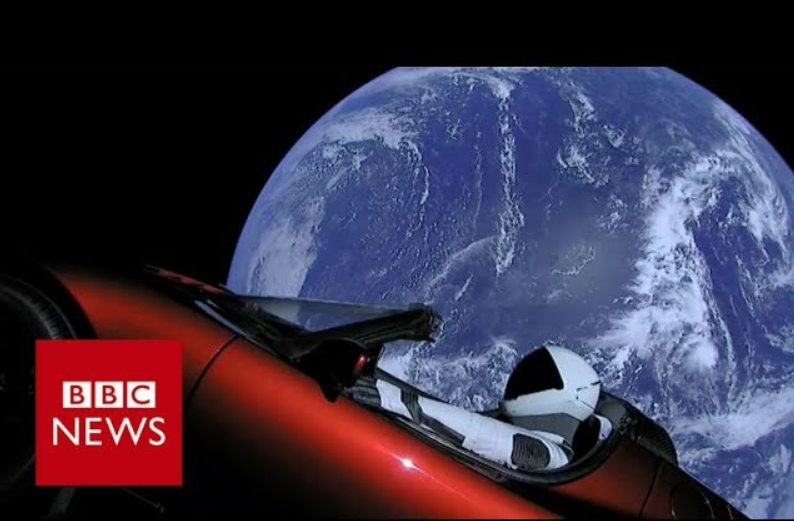
May 17, 2019 | BBC World Service, Celebrities, Entrepreneurship
This month, the modern space race is really firing up. Three of the world’s most exciting entrepreneurs are vying for supremacy in space exploration: Elon Musk of SpaceX, Jeff Bezos of Blue Origin and Richard Branson of Virgin Galactic.
Last week, I joined Rob Young on the BBC World Service to explore: who’s most likely to win today’s space race; and what’s motivating them?
Richard Branson is focused on taking tourists into space. His Virgin Galactic company offers sub-orbital space flight for a cool $250,000 a ticket. He plans to be one of Virgin’s first “citizen astronauts” later this year.
Elon Musk and Jeff Bezos have much more ambitious goals – to establish colonies in space. But that’s where their missions diverge: Bezos wants to create a colony on the moon and on multiple giant space stations orbiting the Earth. He just released detailed plans for Blue Origin’s “Lunar Lander.”
“We will go back to the moon,” Bezos says, “This time to stay!”
But Musk has even loftier goals. He famously told me, “I want to die on Mars, just not on impact!”
Listen to the BBC podcast here (Space discussion starts @17:35)
And here’s the Fresh Dialogues podcast featuring a short clip of my interview with Elon Musk:
Audio Player
.
Musk envisions a thriving colony on Mars. To fund that mission, he has created a booming SpaceX business, launching private satellites into space, as well as offering rocket-courier service to the International Space Station. But Musk is also vying for a slice of the Trillion dollar internet connection business.
This month, SpaceX’s plans to launch its first 60 satellites in the Starlink mission to bring fast internet connection to billions of the world’s unserved population. Bullish as ever, Musk’s ultimate plan is for 12,000 satellites in low earth orbit.
Rival, OneWeb, backed by Richard Branson has more modest plans for a 600 satellite constellation. The race is on!
The BBC’s Rob Young started by asking my fellow guest, Liz Gwynn, Prime 7 TV Anchor (from Wagga Wagga, Australia) if she’d take up Richard Branson’s invitation to go for a ride on Virgin Galactic’s VSS Unity. Her answer made me chuckle!
Here’s a transcript of some of our conversation:
Rob Young: Which of the billionaires will win this space race?
Alison van Diggelen: I’d put money on Elon Musk. He’s defied naysayers time and time again. His company – SpaceX – has pioneered reusable rockets which has driven down the cost by a factor of four.
This summer, they plan to be the first private company to launch astronauts to the International Space Station. Previously, it’s just been superpowers.
Rob Young: Is it a serious business, or just bragging rights?
Alison van Diggelen: Elon Musk has had a lifetime ambition. He’s famously said: I want to die on Mars. Just not on impact!
He’s doing it for the adventure, but also as an inspirational objective, and something that can make humans a multi-planetary species. It’s a big dream, a big vision.
***
Find out more
Our BBC conversation moved on to Clean Energy and California’s ambitious goals to decarbonize its energy sources. Listen to the BBC World Service @42:30 when we discuss Governor Gavin Newsom and his bold stance on clean energy.
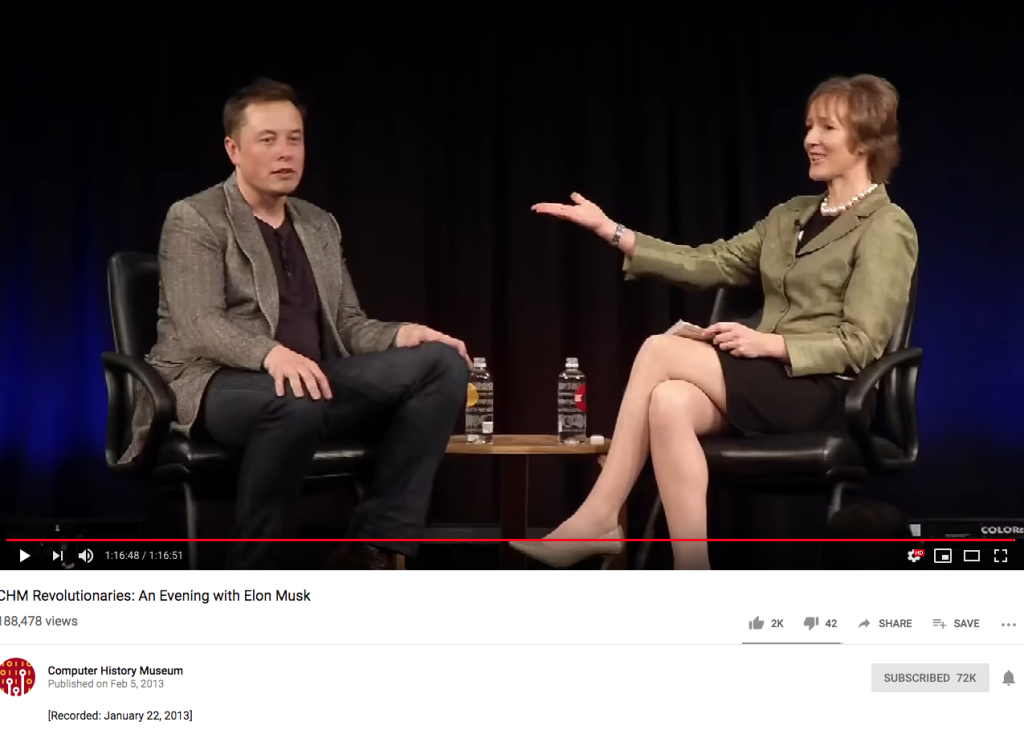
Watch my in-depth and candid conversation with Elon Musk, recorded in Silicon Valley in 2013. We cover everything from his rule breaking adventures at age six, to pre-SpaceX adventures in Moscow; to the future of Tesla.
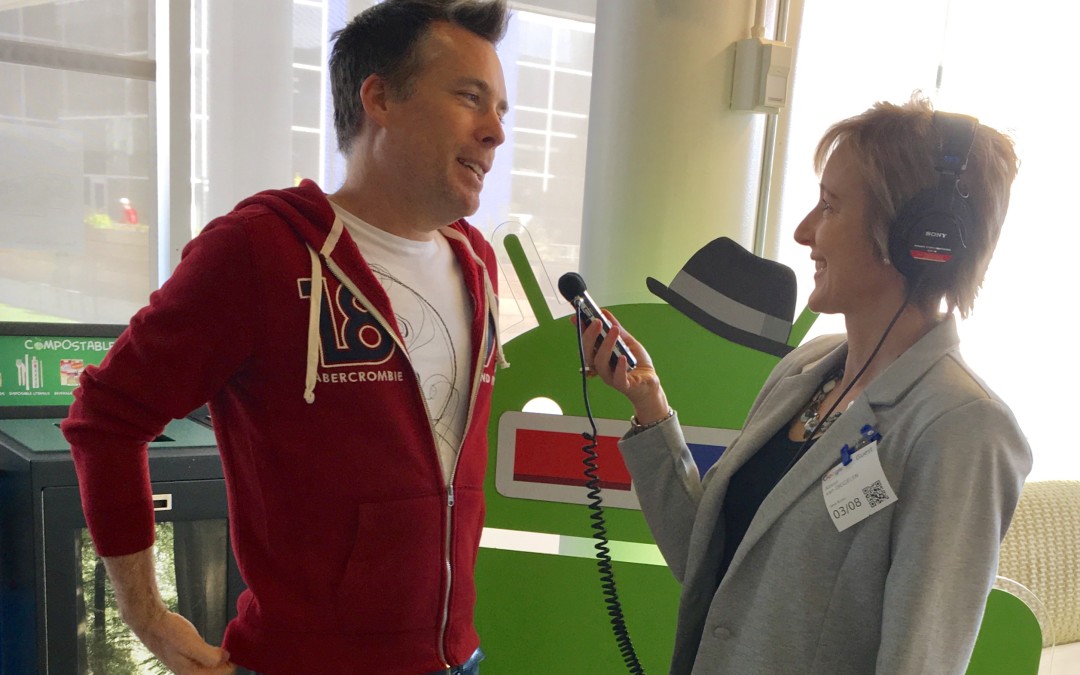
Mar 24, 2017 | Featured, Technology
Deep learning; geek nostalgia; Google’s Pixel phone; and why seeking ‘uncomfortably exciting’ opportunities can bring success.
Alison van Diggelen, host of Fresh Dialogues sat down with Google’s Dave Burke, an Irishman, who has risen quickly through the ranks. He leads the Android team, with responsibility for the device and developer ecosystem; and Google’s Pixel phone. How did he succeed so fast, and what qualities does he seek when hiring for his growing team?
I interviewed Burke this month for a BBC World Service report exploring Irish identity and success in Silicon Valley. We had a lively and wide ranging conversation full of insights for tech geeks and entrepreneurs alike, so I’m posting the uncut interview for your listening pleasure.
Listen to the uncut interview:
Audio Player
“It’s his ability to intuit a bold vision for the future, and then be comfortable in the abstract and yet push tenaciously forward over multiple years. Successful mathematicians need a similar personality – they have an intuition that a solution exists but initially have no concrete certainty on how to prove it and have to persist, sometimes over decades. Einstein’s story of deriving his theory of general relativity is a good example. This personality trait attracts other smart people… For Elon, the ‘contagious confidence’ extends out to his customers, i.e. many are willing to pay a high premium for a Tesla car and don’t seem to worry about the future viability of this fledgling startup, simply because have confidence in the founder.” Dave Burke, Google
Here’s are some highlights of our conversation:
On the secrets of Burke’s success @00:20
“Seek out challenges that are uncomfortably exciting…there’s always a risk of failure, but if you succeed, you could make a huge impact.”
Why he’s so excited about deep learning @19:23
“The big hot area is deep learning, using neural networks….applying lots of data. You can make machines do incredible things…The potential for deep learning and for AI to make our lives easier is very exciting.”
On Google’s Pixel phone @27:15
“Software pushes the hardware and hardware pushes the software. To advance the operating system, you need to have them working really closely together. It allows Google to have its own product. If you’re a Google user, this is the ideal phone for you.”
On rumors of a new Pixel phone this year @27:54
“I can neither confirm nor deny rumors. Technology moves very fast, the cadence…Typically every year, you try to do something new and exciting…we are very busy, working on a lot of stuff… The reviews have been great…but I see the potential for so much more, in terms of innovation, product quality.”
We also discussed Burke’s “geek nostalgia” for the BBC Micro computer by Acorn (the precursor to ARM); the gravitational pull of Silicon Valley; the three questions you need to ask to discover if someone is “really Irish”; and flying robotic lemonade stands!
Look out for more “Fresh Dialogues Uncut” featuring Elon Musk, Arianna Huffington, Charlie Rose and Patagonia’s Yvon Chouinard.
Check out dozens more Fresh Dialogues podcasts on iTunes.
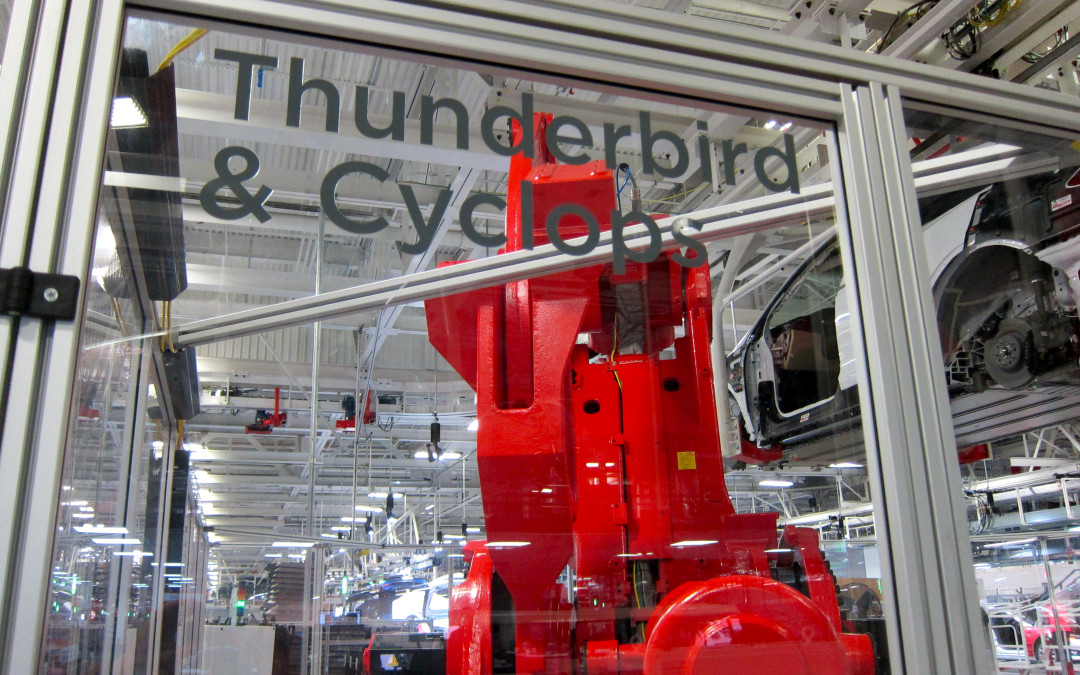
Feb 24, 2017 | BBC World Service, Clean Tech, Electric Vehicles
Elon Musk continues to make ambitious plans for Tesla Motors, some even call them “ludicrous.” Not content to make a niche product for electric vehicle enthusiasts, he now wants to conquer the mass market, competing in the major leagues against GM, BMW, Ford et al. Musk is promising an annual production of 1 million cars by 2020, a staggering increase from last year’s paltry: 76,000. Is he insane?
On a conference call with Musk and media colleagues this week, Alison van Diggelen, host of Fresh Dialogues learned that Musk is still calm and laser-focused on executing his “Tesla Master plan.” This year is crunch time for Tesla. The future of the company rests on the timely and efficient production of the Model 3, Tesla’s smaller, mass market car. Will demand stay strong, despite intense competition and reservation holders threatening to cancel due to his position on Trump’s economic advisory team? Musk seemed to flounder a bit on this question and refused to disclose the latest reservation numbers, for fear of analysts “reading too much into them.”
During the discussion of Tesla’s 2016 financial results, some anomalies arose. Despite continuing to make massive losses (due to capital investment in the Tesla Factory and the Gigafactories), its share price is still in the stratosphere. Tesla might produce a small fraction of GM and Ford’s output, but the company is valued on par with them. What gives?
“The recent run-up in Tesla stock has less to do, in our view, with anything around the near-term financials, and more to do with the nearly superhero status of Elon Musk,” Barclays analyst, Brian Johnson.
Superhero status? More ludicrousness…The superheroes Tesla is focused on are the mighty robots on the factory floor. Musk has named them after X-men superheroes, like Cyclops and Thunderbird (see photo above); and they’re the ones that’ll have to earn their superhero status as manufacturing goes into top gear in the next few month.
“Tesla is going to be hell-bent on becoming the best manufacturer on earth.” Elon Musk
The BBC’s Fergus Nicoll invited me on Business Matters to help explain more.
Listen to the full podcast on BBC World Service (starts at 37:30) or the 5 minute clip below:
Audio Player
Here’s a transcript of our conversation (edited for length and clarity):
BBC Host, Fergus Nicoll: Tesla stock has hit record highs, soaring 50% since December. With investor confidence growing that Tesla will deliver its Model 3 on time. Let’s explore this with Alison in Silicon Valley. Before we get into the nitty gritty of Model 3, and the other numbers, I know you watched Elon Musk do the webcast that go with the Q4 figures. What kind of presentation did he come up with?
Alison van Diggelen: I listened to the (live conference call) podcast. Elon Musk was on the podcast with his (retiring) CFO, answering questions from the media. They were generally upbeat. Elon Musk always over-promises how soon his vehicles will be delivered, but he is confident that they’re going to start deliveries of their Model 3 in July of this year, for employees first…beta testing for employees. He’s hoping for the mass rollout starting in September of this year. They’re pretty bullish about that.
Fergus Nicoll: Here’s the thing: Tesla has a valuation pretty close to Ford. But compared to Ford it makes about five cars! So what are we seeing? A massive future priced into that?
Alison van Diggelen: That’s right. Last year, Tesla delivered 76,000 vehicles (compared to Ford’s 2.5 million), but Elon Musk is very bullish. He’s aiming for the factory to produce 500,000 cars by the end of 2018, and one million a year by 2020. He’s ludicrously ambitious. Brian Johnson, who’s an analyst with Barclays, called this run up in the Tesla stock more “Elon Musk superhero status” than short term financials. What Elon Musk says, he often delivers….eventually.
Tesla merged with SolarCity, the rooftop solar provider, so that is also giving an upside. They’ll be able to cut costs: Tesla showrooms will also become showrooms for the SolarCity solar panels. They’re also doing the other side of the equation: energy storage….
Fergus Nicoll: The household and business batteries.
Alison van Diggelen: Exactly.
Fergus Nicoll: The thing is, Americans drive insane distances. Electric cars have to go a long way….the infrastructure has to catch up with the company?
Continue listening to the podcast clip above, or at BBC Business Matters for more about:
The ambitious supercharger network expansion
The fact that all cars will be equipped to be fully self-driving
Why the market continues to bet on Elon Musk
***
For Tesla to succeed in becoming “the best manufacturer on earth,” three big questions remain:
- Will the Tesla Model 3 be delivered on time and on budget this year?
- Will demand stay strong for Tesla, despite stiff competition from GM, Ford, BMW, Nissan, etc?
- Can Tesla make the huge capital investment required (for the Tesla Factory and Gigafactories expansion), without running out of money?
Read more about Tesla and Elon Musk from Fresh Dialogues archives

 We explored why we get stuck and what we can do to get unstuck, and build momentum in our lives and careers. Julian’s story and the one she shares about XPrize’s Peter Diamandis demonstrates how sometimes, having audacious goals, and making audacious promises without having all the pieces in place, can help propel you into an action mindset and phenomenal success.
We explored why we get stuck and what we can do to get unstuck, and build momentum in our lives and careers. Julian’s story and the one she shares about XPrize’s Peter Diamandis demonstrates how sometimes, having audacious goals, and making audacious promises without having all the pieces in place, can help propel you into an action mindset and phenomenal success. I asked Julian to share the story of one excruciating time she was stuck and found it hard to move forward. After she secured a book deal for her best seller, “The Billionaire and the Mechanic” she hit a wall. She could not convince Oracle founder Larry Ellison (the billionaire in question) to be interviewed for the project. Without his cooperation, her book was dead in the water.
I asked Julian to share the story of one excruciating time she was stuck and found it hard to move forward. After she secured a book deal for her best seller, “The Billionaire and the Mechanic” she hit a wall. She could not convince Oracle founder Larry Ellison (the billionaire in question) to be interviewed for the project. Without his cooperation, her book was dead in the water. 







